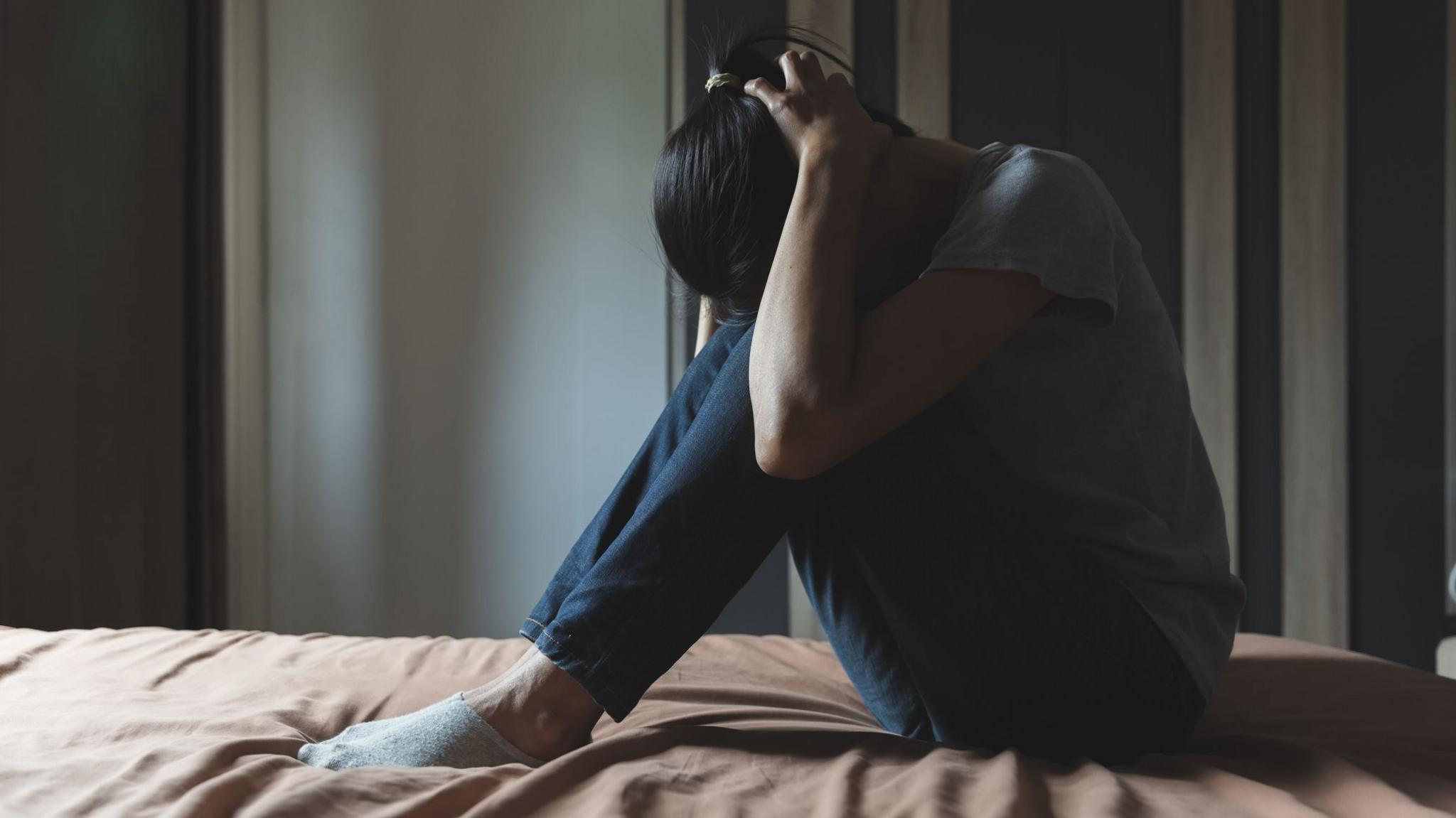Judges consider ruling on definition of a woman
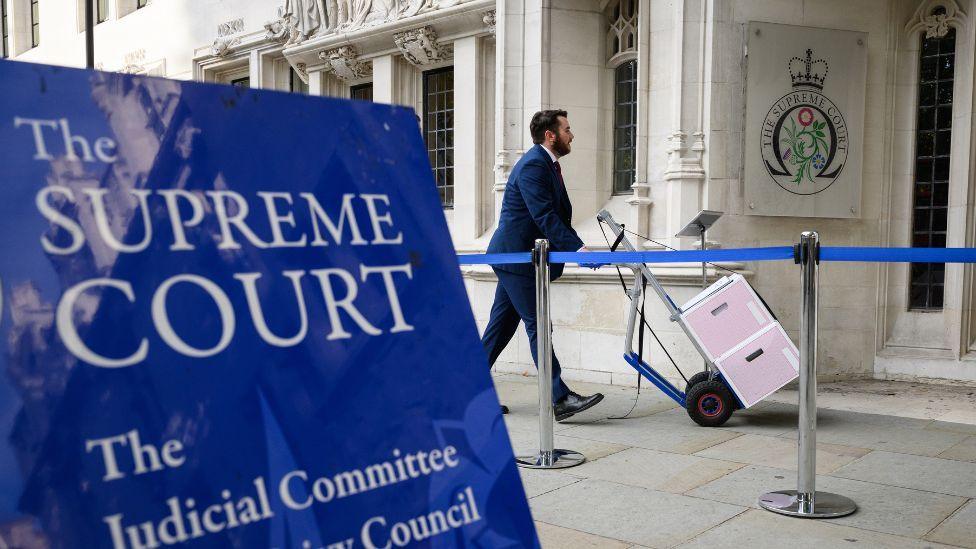
Scottish ministers have made their case at the Supreme Court in London
- Published
Supreme Court judges have retired to consider their ruling on a long-running legal battle over the definition of a woman in Holyrood legislation.
It is the final stage in a case between the Scottish government and campaign group For Women Scotland that could have implications for people across Britain.
The dispute centres on whether trans women can be regarded as women for the purposes of the Equality Act.
A two-day hearing has concluded, with judges to give their ruling at a later date.
The case started with a 2018 Scottish Parliament bill designed to ensure gender balance on public sector boards. It has resulted in the UK’s highest court being asked for a ruling that could affect equalities laws in Scotland, England and Wales.
Judges are being asked to give a definitive verdict on whether a person with a full female gender recognition certificate is a woman under the Equality Act.
Groups such as For Women Scotland say the answer should be no, and say anything different from that could affect the running of single-sex spaces, such as sports clubs and hospital wards.
But trans people are worried that such an outcome could undermine the protections they have under their acquired gender, such as the ability to raise an equal pay claim.
Why is the Supreme Court deciding on the definition of a woman
Why is the Supreme Court deciding on the definition of a woman
- Published27 November 2024
What's happening with Scotland's gender reform plans?
- Published8 December 2023
The Scottish government argues the Gender Recognition Act (GRA) of 2004 makes clear a gender recognition certificate changes one’s sex “for all purposes”.
In court on Tuesday, For Women Scotland, represented by Aidan O'Neill KC, argued in court that the GRA law was later superseded by the Equality Act of 2010.
But Ruth Crawford KC, representing Holyrood ministers, told the court there was "no express measure" in the Equality Act to affect the GRA's wording that a certificate changes someone's sex, "nor is it implied by the purpose of the act”.
The Scottish government argues MPs knew what they were doing when they passed the two pieces of legislation, and that the language within them was clear.
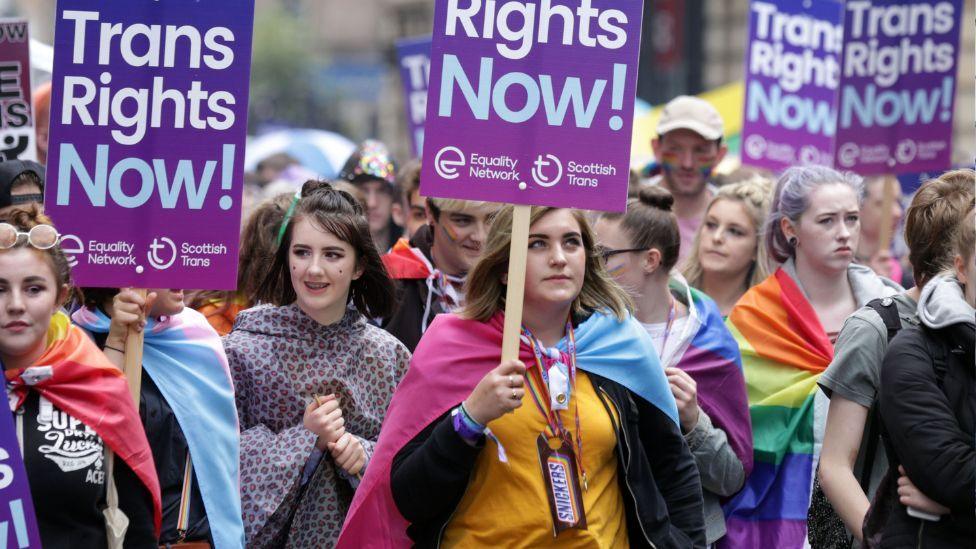
Trans activists fear the case could undermine protections offered to people with an acquired gender
Ms Crawford told the court the UK Parliament had GRA “in mind” when passing the 2010 Equality Act.
The lawyer told the court the GRA ensured “a person who has become the sex of their acquired gender is entitled to the protections of that sex”, including protection against unfavourable treatment as an individual or a group.
Ms Crawford said someone who had acquired status as a women using a gender recognition certificate was entitled to protections under the Equality Act just as those who were women at birth were.
She also said a woman who had a gender recognition certificate to become a man no longer belonged to their previous sex, and would lose protections offered under the Equality Act.
She countered claims from Mr O'Neill that a gender certificate was a "legal fiction" or of merely symbolic value.
She described it as a "fundamental right" similar to adoption, telling the court a gender recognition certificate affected an individual's relationship with the state, and with private organisations such as employers.
'Absurd or nonsensical outcomes'
On Tuesday, Mr O'Neill argued for what he called the "common sense" meaning of the words man and woman, telling judges that sex is an "immutable biological state” – and that this interpretation is necessary to protect the rights of women.
The lawyer said the Scottish government was “just wrong” to claim that when the Equality Act refers to sex, it refers to legal certified sex instead of biological sex.
Mr O'Neill denied that For Women Scotland's arguments were "transphobic", telling the court that it could never have been the UK Parliament’s intention for equality law to have “absurd or nonsensical outcomes”.
He raised concerns about what could happen if the court sided with the Scottish government.
The KC cited fears about single-sex services – including prisons, sports clubs and hospital wards – and said they could face legal challenges based on who they admit.
He urged judges to guard against the “inevitable and insidious pull towards patriarchy”.
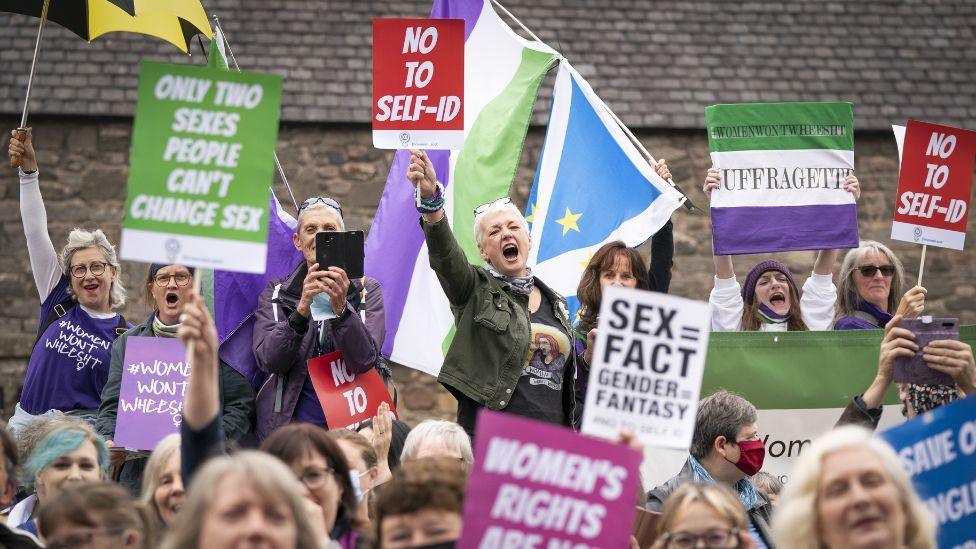
Campaign groups such as For Women Scotland say the ruling could affect the running of single-sex spaces
The case centres on legislation passed at Holyrood in 2018 mandating 50% female representation on public boards.
Its definition of a woman included people who were “living as a woman” and were currently or proposing to undergo gender reassignment process.
For Women Scotland successfully challenged this in the courts, prompting ministers to change the bill to the effect that a full gender recognition certificate could be taken as a declaration of someone’s sex “for all purposes”.
For Women Scotland then launched another judicial review but lost the case. A judge ruled the definition of sex was “not limited to biological or birth sex”, but included those with a gender recognition certificate.
It is this statement that For Women Scotland is seeking a definitive ruling on at the Supreme Court.
The case was heard by five judges - headed by the court's president, Lord Reed.
He said they would deliver the judgement "as soon as we can".
- Published27 November 2024
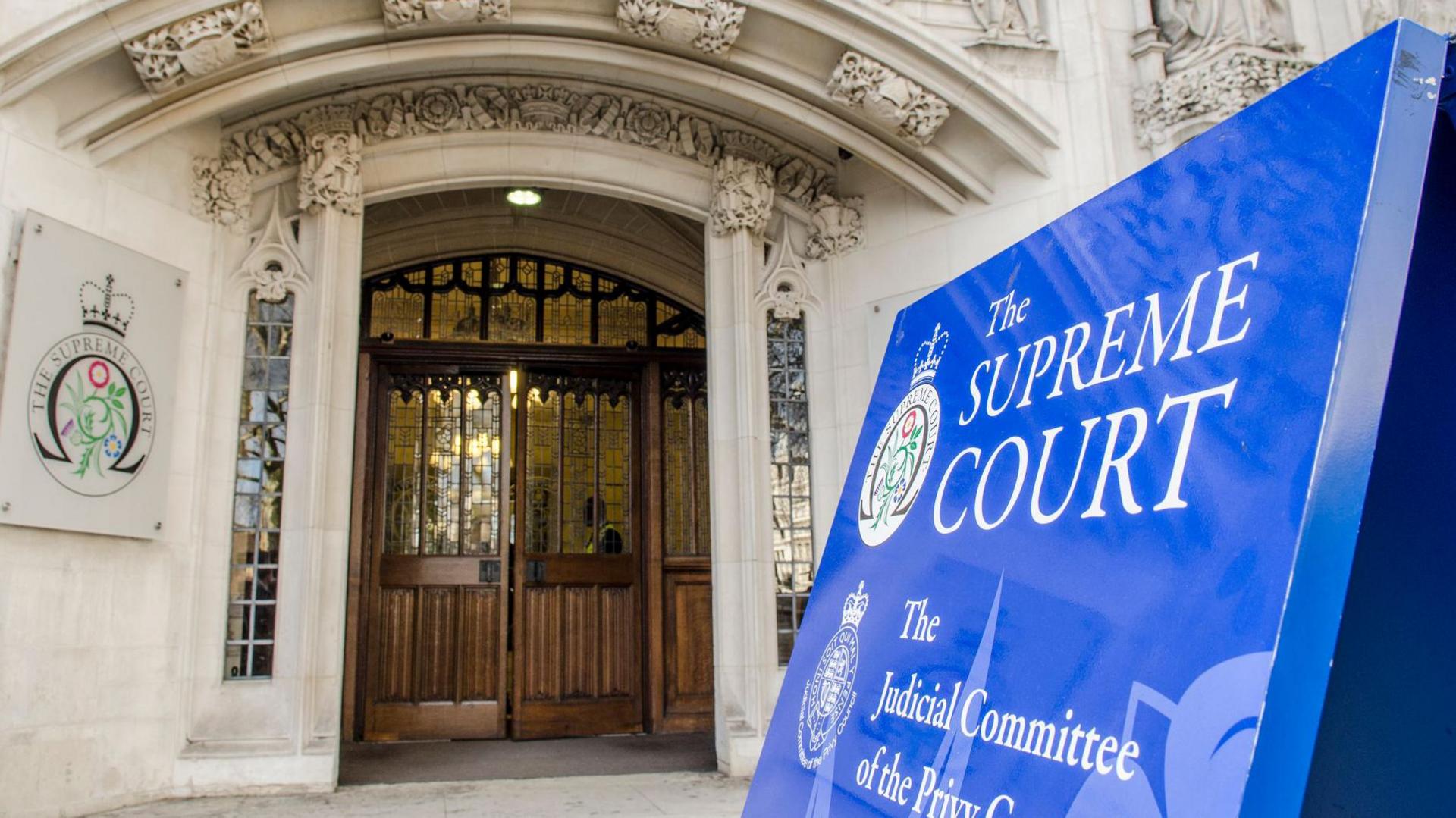
- Published1 November 2023
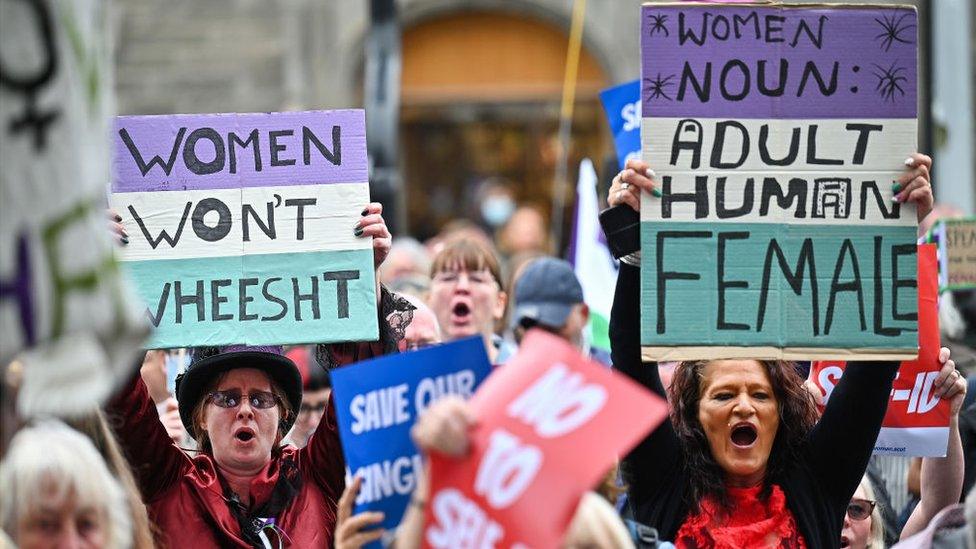
- Published24 October 2024
